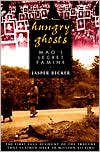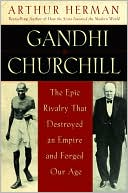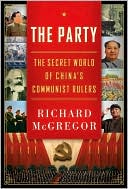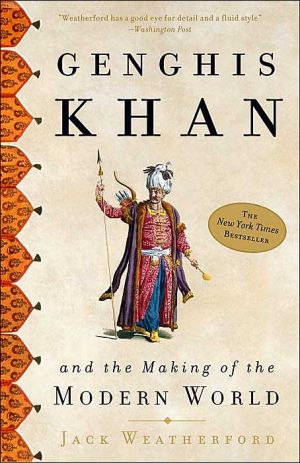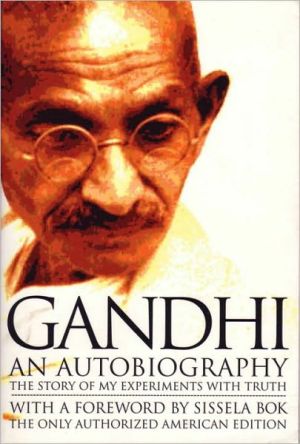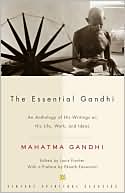Hungry Ghosts: Mao's Secret Famine
In the late 1950s and early 1960s, the Chinese people suffered what may have been the worst famine in history. Over thirty million perished in a grain shortage brought on not by flood, drought, or infestation, but by the insanely irresponsible dictates of Chairman Mao Ze-dong's "Great Leap Forward," an attempt at utopian engineering gone horribly wrong. \ Journalist Jasper Becker conducted hundreds of interviews and spent years immersed in painstaking detective work to produce Hungry Ghosts,...
Search in google:
In the late 1950s and early 1960s, the Chinese people suffered what may have been the worst famine in history. Over thirty million perished in a grain shortage brought on not by flood, drought, or infestation, but by the insanely irresponsible dictates of Chairman Mao Ze-dong's "Great Leap Forward," an attempt at utopian engineering gone horribly wrong. Journalist Jasper Becker conducted hundreds of interviews and spent years immersed in painstaking detective work to produce Hungry Ghosts, the first full account of this dark chapter in Chinese history. In this horrific story of state-sponsored terror, cannibalism, torture, and murder, China's communist leadership boasted of record harvests and actually increased grain exports, while refusing imports and international assistance. With China's reclamation of Hong Kong now a fait accompli, removing the historical blinders is more timely than ever. As reviewer Richard Bernstein wrote in the New York Times, "Mr. Becker's remarkable book...strikes a heavy blow against willed ignorance of what took place." Library Journal Becker, Beijing Bureau Chief for the 'South China Morning Post', sees the 1958-62 famine, even more than the Cultural Revolution that followed it, as China's greatest trauma of the century. Population statistics made public since 1979 reveal that at least 30 million people starved to death in the wake of Mao's Great Leap Forward. Although Becker concedes that the American press (especially Joseph Alsop) reported the famine with accuracy, he notes that other Western "foreign experts" who admired Mao, such as Edgar Snow, Rewi Alley, and Anna Louise Strong, remained silent or played down its severity. The tragedy could have been averted, Becker concludes, after the first year if Mao's senior advisers had dared to confront him. Unlike such academic works as Dali L. Yang's "Calamity and Reform in China" (Stanford Univ., 1996), this work presupposes little knowledge of communism and China; Becker's strength is his anecdotal, journalistic style. This is fascinating journalism, but the definitive study has yet to be written. - Jack Shreve, Allegany Community Coll., Cumberland, Md.
IllustrationsForewordAcknowledgementsMapThe Year Zero11China: Land of Famine92Arise, Ye Prisoners of Starvation243The Soviet Famine374The First Collectivization, 1949-1958475False Science, False Promises586Mao Ignores the Famine837An Overview of the Famine998Henan: A Catastrophe of Lies1129Anhui: Let's Talk about Fengyang13010The Other Provinces15011The Panchen Lama's Letter16612In the Prison Camps18313The Anatomy of Hunger19814Cannibalism21115Life in the Cities22016Liu Shaoqi Saves the Peasants23517Mao's Failure and His Legacy25518How Many Died?26619How to Record the Annals of a Place?27520The Western Failure287Afterword307Appendix: Biographical Sketches313Notes317Bibliography333Index339
\ From the Publisher\ "An accessible, masterly account of the greatest peacetime disaster of this century."--The New York Times Book Review\ \ \ \ \ \ Library JournalBecker, Beijing Bureau Chief for the 'South China Morning Post', sees the 1958-62 famine, even more than the Cultural Revolution that followed it, as China's greatest trauma of the century. Population statistics made public since 1979 reveal that at least 30 million people starved to death in the wake of Mao's Great Leap Forward. Although Becker concedes that the American press (especially Joseph Alsop) reported the famine with accuracy, he notes that other Western "foreign experts" who admired Mao, such as Edgar Snow, Rewi Alley, and Anna Louise Strong, remained silent or played down its severity. The tragedy could have been averted, Becker concludes, after the first year if Mao's senior advisers had dared to confront him. Unlike such academic works as Dali L. Yang's "Calamity and Reform in China" (Stanford Univ., 1996), this work presupposes little knowledge of communism and China; Becker's strength is his anecdotal, journalistic style. This is fascinating journalism, but the definitive study has yet to be written. - Jack Shreve, Allegany Community Coll., Cumberland, Md.\ \ \ The New York TimesAn accessible, masterly account of the greatest peacetime disaster of this century. -- The New York Times Book Review\ \ \ \ \ Kirkus ReviewsThe first serious attempt to unearth the truth of the massive human tragedy behind the "Great Leap Forward" in China between 1958 and 1961.\ Becker, Beijing bureau chief for the 'South China Morning Post', conducted hundreds of interviews in his effort to understand what happened. It is an extraordinary story, in which the errors that led Stalin to devastate agriculture in the Soviet Union, killing 11 million peasants, were duplicated in China by Mao, at the cost of another 30 million lives. Mao believed that wheat could be planted so close together that you could sit on it, furrows could be plowed 10 feet deep, and gigantic dams and canals built without expert advice. The plants died, the dams filled up with silt, and the canals were useless, but Mao was told that the national grain harvest had gone from 185 to 430 million tons. The officials now began to seize grain based on the inflated claims. When the minister of defense, Peng Dehuai, questioned the figures, he was put under house arrest and a campaign of terror instituted. The result, Becker notes, was bizarre because most of the party leadership knew the truth but couldn't acknowledge the widespread starvation until Mao did so. By the end of 1960 Mao's colleagues realized that the regime was in danger of collapse. Becker believes that the Cultural Revolution, launched by Mao in 1966, may well have been directed at undermining those who had striven to restore sanity. One of the most tragic aspects of this story is the role played by respected Western observers including Edgar Snow, Gunnar Myrdal, and François Mitterand. In ridiculing reports that China was suffering from famine, they may well have cost millions of lives. They also created a myth of what China had achieved, the consequences of which are still being felt in places like Cambodia, Ethiopia, and Tanzania a generation later.\ A remarkable book, the more devastating for its quietness and absence of rhetoric.\ \ \
